20 Jul2021
By Amaya Garcia and Joseph Hood
 Minnesota is home to an increasingly racially and linguistically diverse student population, yet the diversity of the state’s teacher workforce has remained stagnant. To help address this racial and linguistic match, school districts are partnering with educator preparation programs to develop and implement Grow Your Own programs that seek to recruit and prepare community-based teachers.
Minnesota is home to an increasingly racially and linguistically diverse student population, yet the diversity of the state’s teacher workforce has remained stagnant. To help address this racial and linguistic match, school districts are partnering with educator preparation programs to develop and implement Grow Your Own programs that seek to recruit and prepare community-based teachers.
As outlined in a recent New America report, Minnesota is one of nine states in the country that offers a competitive GYO grant designed to promote teacher residency programs for adult community members and opportunities for high school students to gain exposure to teaching as a career. While the state provides funding, there are few directives about how GYO programs should be designed, reflecting the importance of local control and governance.
13 Jul2021
By Nicole Dunn
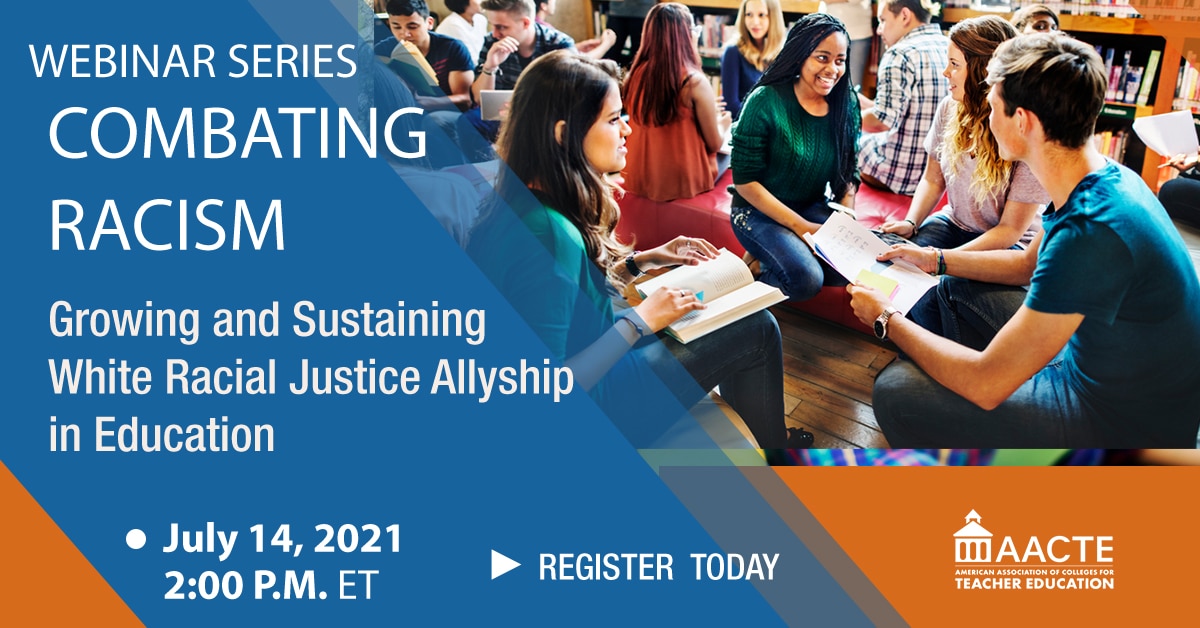
AACTE invites like-minded educators to attend the webinar, “Combating Racism in Education Prep: An Introduction to Authentic, Action-Oriented Allyship as Educators.” As part of AACTE’s Combating Racism in Educator Preparation series, this webinar is the first one produced for a “White Racial Justice” affinity group. The webinar takes place July 14 at 2:00 p.m. ET.
Who should attend?
This is an opportunity for anyone who is an educator or education advocate to learn more about and/or re-energize and re-frame the conversation on creating equitable educator preparation programs that prepare teachers to enter the nation’s schools armed with not just an understanding of how we got here, but also with strategies to be advocates for themselves and their students who may have less institutional agency.
06 Jul2021
By Jacqueline Rodriguez
This article originally appeared in Diverse Issues in Higher Education and is reprinted with permission.
Teacher diversity is invaluable for all students. Having a teacher of color at the helm of a classroom benefits all learners, both academically and through deep and enriching social emotional connections. However, according to The White House’s fact sheet for The American Families Plan, while teachers of color can have a particularly strong impact on students of color, the U.S. Bureau of Labor Statistics reports that only one in five teachers are people of color, compared to more than half of K-12 public school students. That is why President Biden is calling on Congress to invest $9 billion in American teachers, addressing shortages, improving training and supports for teachers, and boosting teacher diversity.
Why teacher diversity matters
Representation in the classroom matters. Having a diverse teacher workforce connects cultures, sets high expectations, and reduces implicit bias. Far too often, students of color feel isolated, underrepresented or mistreated, which leads to lower graduation and higher dropout rates. Decades of research has demonstrated that teachers of color can help close access and opportunity gaps for students of color while being vital to the well-being of students of all races. With a teacher of color leading a classroom, students of color see themselves represented and identify with them as role models. A diverse teacher workforce not only supports a student’s academic and social and emotional outcomes, it can lead classroom students to consider becoming educators themselves.
06 Jul2021
By Nicole Dunn
 A panel of experts who have dedicated their careers to the pursuit of equity in education will present AACTE’s first webinar produced for a “White Racial Justice” informal affinity group as part of AACTE’s in Combating Racism in Educator Preparation series. Join your like-minded peers and attend the webinar, “Combating Racism in Education Prep: An Introduction to Authentic, Action-Oriented Allyship as Educators” on July 14 at 2:00 p.m. ET.
A panel of experts who have dedicated their careers to the pursuit of equity in education will present AACTE’s first webinar produced for a “White Racial Justice” informal affinity group as part of AACTE’s in Combating Racism in Educator Preparation series. Join your like-minded peers and attend the webinar, “Combating Racism in Education Prep: An Introduction to Authentic, Action-Oriented Allyship as Educators” on July 14 at 2:00 p.m. ET.
Through the panelists’ diverse background and experiences, the presenters will introduce language, frameworks, resources, and strategies for the audience to use in their learning and reflection to be anti-racist educators and learn discussion and advocacy techniques to use in their professional and personal lives.
This is an opportunity for anyone who is an educator or education advocate to learn more about and/or re-energize and re-frame the conversation on creating equitable educator preparation programs that prepare teachers to enter the country’s schools armed with not just an understanding of how we got here, but also with strategies to be advocates for themselves and their students who may have less institutional agency.
29 Jun2021
By Nicole Dunn

You are invited to register for the upcoming BIPOC affinity webinar and White Racial Justice affinity webinar offered as part of the “AACTE Racism is Educator Preparation” series.
AACTE’s “Combating Racism is Educator Preparation Series’ began in 2021 with three specific objectives for our membership, audience, and the field at large:
- Contextualize the role of racism in structural oppression and how the education system at large maintains and promulgates these oppressive systems.
- Engage with you, our audience, to understand you and your organization’s understanding and capacity to address racism using antiracist, abolitionist, inclusive, and intersectional policies.
- Normalize and humanize critical conversations around racism within the field that will lead to collaborative action around structural oppression in education.
17 Jun2021
By Michael Rose
 AACTE will close its offices tomorrow in recognition of Juneteenth, which honors the day when Union troops arrived in Galveston Bay, Texas, to enforce the 1863 Emancipation Proclamation. Until that day, June 19, 1865, Black men, women, and children in Texas remained enslaved, despite the provisions of the Emancipation Proclamation. Juneteenth, as named by the newly freed citizens, is celebrated annually on June 19. Congress voted this week to make Juneteenth a federal holiday.
AACTE will close its offices tomorrow in recognition of Juneteenth, which honors the day when Union troops arrived in Galveston Bay, Texas, to enforce the 1863 Emancipation Proclamation. Until that day, June 19, 1865, Black men, women, and children in Texas remained enslaved, despite the provisions of the Emancipation Proclamation. Juneteenth, as named by the newly freed citizens, is celebrated annually on June 19. Congress voted this week to make Juneteenth a federal holiday.
AACTE staff pauses its work to reflect on the violence, including murder, that our Black, Latinx, Native American, Asian-American Pacific-Islander, and Transgendered populations are particularly experiencing, in addition to the long history of violence against these groups of people. AACTE condemns, in the strongest terms, this violence and invites all its colleagues to work together to create a society in which no one should fear for their lives based on the color of their skin or gender identity.
14 Jun2021
By Linda Minor
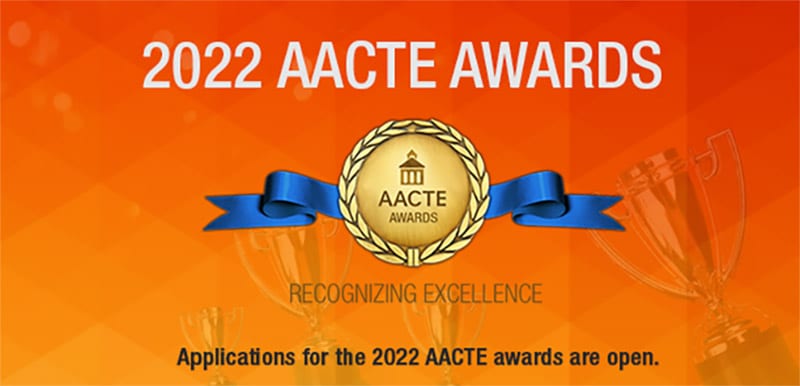 Why wait to submit your application for the 2022 AACTE Awards? Avoid the stress of a last-minute rush and submit your entry early. AACTE Awards can be either self-nominated or nominated by a third party. To submit your nomination, visit AACTE’s online submission site.
Why wait to submit your application for the 2022 AACTE Awards? Avoid the stress of a last-minute rush and submit your entry early. AACTE Awards can be either self-nominated or nominated by a third party. To submit your nomination, visit AACTE’s online submission site.
Winning entries will be selected by AACTE’s Programmatic Advisory Committees and recognized formally at the 2022 Annual Meeting, March 4-6, in New Orleans, LA.
This is the 26th year AACTE’s awards program has been recognizing member institutions’ exemplary programs as well as individuals who have made noteworthy contributions to education preparation. For an overview of the 2021 award winners, see this press release.
08 Jun2021
By Katrina Norfleet
Last month, President Biden called for an unprecedented investment in his FY 22 budget proposal to begin to redress the chronic inequities in our nation’s education system. In a new playbook, the Partnership for the Future of Learning offers a set of high-impact strategies and examples for recruiting, preparing, developing, and retaining high-quality teachers and bringing greater racial, ethnic, and linguistic diversity to the profession.
The 152-page Teaching Profession Playbook was developed by the Learning Policy Institute and the Public Leadership Institute in collaboration with 26 organizations and five individual experts. The digital playbook includes examples of legislation; a curated list of publications, by topic, for further reading; a guide to talking about teacher shortages and strengthening the profession; and examples of research-based policies.
07 Jun2021
By Amy Carlson Gustafson
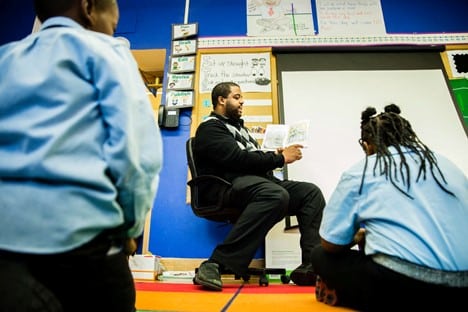
This article originally appeared on the University of St. Thomas Newsroom and is reprinted with permission.
The School of Education at St. Thomas is making inroads to increase the number of people of color who choose to become teachers, and national organizations are recognizing its efforts. In March, the school received notice that the Association of Colleges for Teacher Education (AACTE) accepted its proposal to be part of a consortium to increase equitable access to teaching.
Only around 6% of licensed Minnesota teachers identified as Black, Indigenous and people of color (BIPOC), while 38% of students in the state are nonwhite, according to state data. In efforts to help close that gap, the School of Education will join with other AACTE members to examine entrance requirements for teacher preparation programs. This collaboration exemplifies just one more way in which the school has been working to grow the number of diverse teachers through a variety of programs, including key partnerships.
03 Jun2021
By Kristin Hamilton
The National Board of Professional Teaching Standards is an anti-racist and inclusive organization. We believe that educators must help students consider their role in a diverse world, value individual differences, and—especially in times such as these—we believe in the power of the teaching profession to defend what is good and right for all people.
The National Board for Professional Teaching Standards is seeking applicants from the educator preparation community to serve on the committee that will develop standards in the areas of diversity, equity, and inclusion. These Board certification standards for practicing teachers also impact teacher preparation programs and assessments, professional learning programs, and state licensure systems across the country. The 10-12 committee members will receive an honorarium and will be representative of the diversity among teaching professionals and the students and communities they serve.
14 May2021
By Nicole Dunn
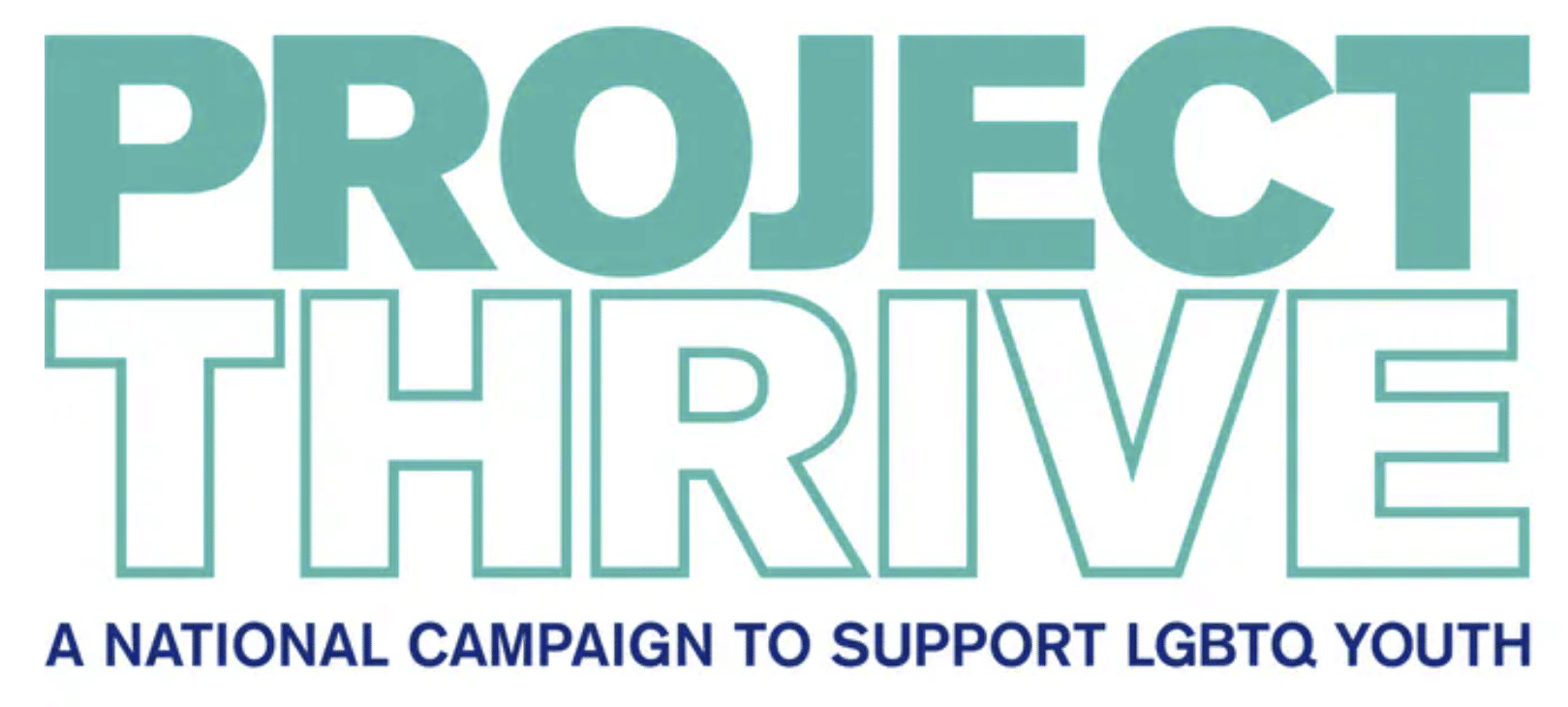 AACTE is honored to share that it has joined the leaders from the nation’s largest health, education, child welfare, legal, and juvenile justice organizations in support of the Human Rights Campaign’s Project THRIVE, a multi-year national campaign to create more equitable, inclusive support systems and communities for LGBTQ youth. The initiative will build the skills and capacities of all youth-serving professionals to better meet the needs of LGBTQ young people.
AACTE is honored to share that it has joined the leaders from the nation’s largest health, education, child welfare, legal, and juvenile justice organizations in support of the Human Rights Campaign’s Project THRIVE, a multi-year national campaign to create more equitable, inclusive support systems and communities for LGBTQ youth. The initiative will build the skills and capacities of all youth-serving professionals to better meet the needs of LGBTQ young people.
Every organization that is part of Project THRIVE has a unique role to play in strengthening family permanence and support, improving health and well-being, increasing school connection, and building a foundation of resilience so that all LGBTQ youth can thrive. Project THRIVE is committed to an intersectional approach in this work, and to ensuring that LGBTQ youth of color and those who are system-involved or have a history of homelessness are a priority focus.
05 May2021
By Weade James

AACTE is pleased to announce the selected states for the Consortium for Research-Based and Equitable Assessments (CREA), a new initiative supported by the Bill & Melinda Gates Foundation. The Consortium, comprised of 14 state teams that include educator preparation programs (EPPs) and their state and local education agencies, will evaluate cut scores for entrance into EPPs, and develop recommendations and model state policies to support state efforts to advance equity and recruit more diverse teacher candidates into the profession.
The 14 selected states and institutions include the following:
04 May2021
By Shandra M. Claiborne-Payton

It is the time of year when AACTE puts out a call for nominations to its programmatic advisory committees. These committees serve the association by providing expert member advice on a wide range of topics related to AACTE’s programs and services. Whatever your professional interests, there is likely a committee that would benefit from your participation.
Have you thought about nominating yourself, but wondered whether serving on one of these committees would be right for you? I can assure you that serving on a programmatic advisory committee is enjoyable, rewarding, and a great professional networking and learning experience. By serving on a committee, you will:
- Ensure that AACTE’s programs and services meet your needs and the needs of your colleagues and institution
- Broaden your professional network to include colleagues from a wide range of institutions around the country
- Deepen your understanding of educator preparation
- Have fun interacting with smart and committed AACTE members and staff
29 Apr2021
By Marquita Grenot-Scheyer
This article originally appeared in Diverse Issues in Higher Education and is reprinted with permission.
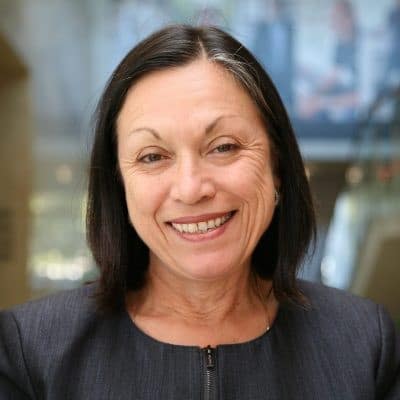 The COVID-19 pandemic shed a harsh light on the systemic inequities in schools and communities. If we believe schools are the epicenter to dismantle racism and inequities, then we must examine our role as teacher educators to address these issues of inequality. How can we use this inflection point to positively and substantively change educator preparation?
The COVID-19 pandemic shed a harsh light on the systemic inequities in schools and communities. If we believe schools are the epicenter to dismantle racism and inequities, then we must examine our role as teacher educators to address these issues of inequality. How can we use this inflection point to positively and substantively change educator preparation?
Both at the system level and on individual campuses, colleges of education must ensure that programs prepare graduates to enter the teaching profession ready to advocate for and implement racial and social justice and advance the transformation of inequitable structures in schools. The pandemic has opened a window into the complexities of the teaching and learning process, which has resulted in greater collaboration among educators and families. As we move forward, we must ensure that candidates’ dispositions reflect and respect the importance of collaboration with students, families, and educational colleagues.
26 Apr2021
By Jerrica Thurman
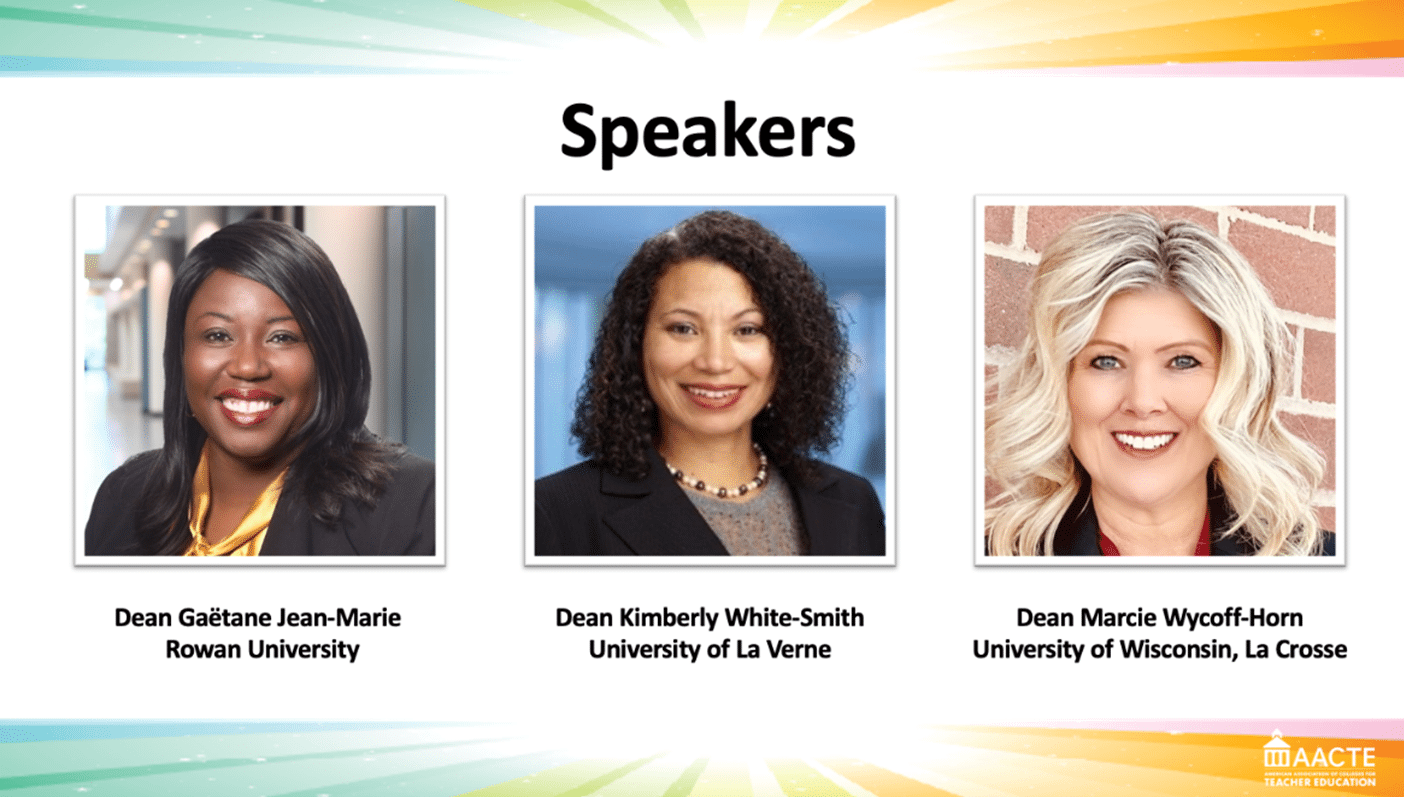
Time is running out to register for AACTE’s upcoming webinar, “Leaning in and Leading Through Crisis,” on April 29 at 2:00 – 3:00 p.m. Join Education Deans Gaëtane Jean-Marie, Kimberly White-Smith, and Marcie Wycoff-Horn in a deeper dive about how to thrive while navigating the COVID-19 and racial and social justice crises, which have impacted institutions across the nation. As equity-minded leaders, these deans will address ways to meet faculty and students’ needs by starting with empathy and ending with action.
 Minnesota is home to an increasingly racially and linguistically diverse student population, yet the diversity of the state’s teacher workforce has remained stagnant. To help address this racial and linguistic match, school districts are partnering with educator preparation programs to develop and implement Grow Your Own programs that seek to recruit and prepare community-based teachers.
Minnesota is home to an increasingly racially and linguistically diverse student population, yet the diversity of the state’s teacher workforce has remained stagnant. To help address this racial and linguistic match, school districts are partnering with educator preparation programs to develop and implement Grow Your Own programs that seek to recruit and prepare community-based teachers.







 AACTE will close its offices tomorrow in recognition of Juneteenth, which honors the day when Union troops arrived in Galveston Bay, Texas, to enforce the 1863 Emancipation Proclamation. Until that day, June 19, 1865, Black men, women, and children in Texas remained enslaved, despite the provisions of the Emancipation Proclamation. Juneteenth, as named by the newly freed citizens, is celebrated annually on June 19. Congress voted this week to make Juneteenth a federal holiday.
AACTE will close its offices tomorrow in recognition of Juneteenth, which honors the day when Union troops arrived in Galveston Bay, Texas, to enforce the 1863 Emancipation Proclamation. Until that day, June 19, 1865, Black men, women, and children in Texas remained enslaved, despite the provisions of the Emancipation Proclamation. Juneteenth, as named by the newly freed citizens, is celebrated annually on June 19. Congress voted this week to make Juneteenth a federal holiday. Why wait to submit your application for the 2022 AACTE Awards? Avoid the stress of a last-minute rush and submit your entry early. AACTE Awards can be either self-nominated or nominated by a third party. To submit your nomination, visit
Why wait to submit your application for the 2022 AACTE Awards? Avoid the stress of a last-minute rush and submit your entry early. AACTE Awards can be either self-nominated or nominated by a third party. To submit your nomination, visit 
 AACTE is honored to share that it has joined the leaders from the nation’s largest health, education, child welfare, legal, and juvenile justice organizations in support of the Human Rights Campaign’s Project THRIVE, a multi-year national campaign to create more equitable, inclusive support systems and communities for LGBTQ youth. The initiative will build the skills and capacities of all youth-serving professionals to better meet the needs of LGBTQ young people.
AACTE is honored to share that it has joined the leaders from the nation’s largest health, education, child welfare, legal, and juvenile justice organizations in support of the Human Rights Campaign’s Project THRIVE, a multi-year national campaign to create more equitable, inclusive support systems and communities for LGBTQ youth. The initiative will build the skills and capacities of all youth-serving professionals to better meet the needs of LGBTQ young people.

 The COVID-19 pandemic shed a harsh light on the systemic inequities in schools and communities. If we believe schools are the epicenter to dismantle racism and inequities, then we must examine our role as teacher educators to address these issues of inequality. How can we use this inflection point to positively and substantively change educator preparation?
The COVID-19 pandemic shed a harsh light on the systemic inequities in schools and communities. If we believe schools are the epicenter to dismantle racism and inequities, then we must examine our role as teacher educators to address these issues of inequality. How can we use this inflection point to positively and substantively change educator preparation?